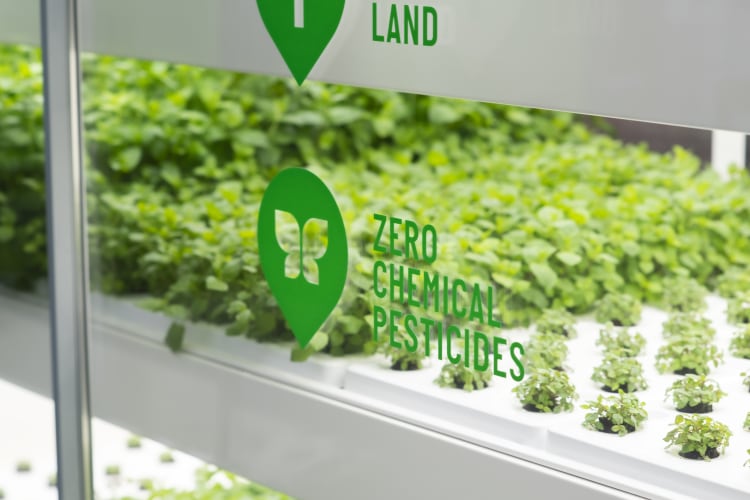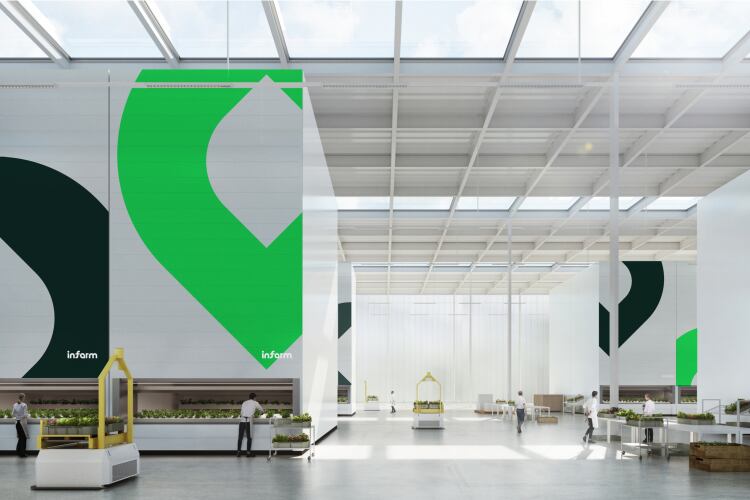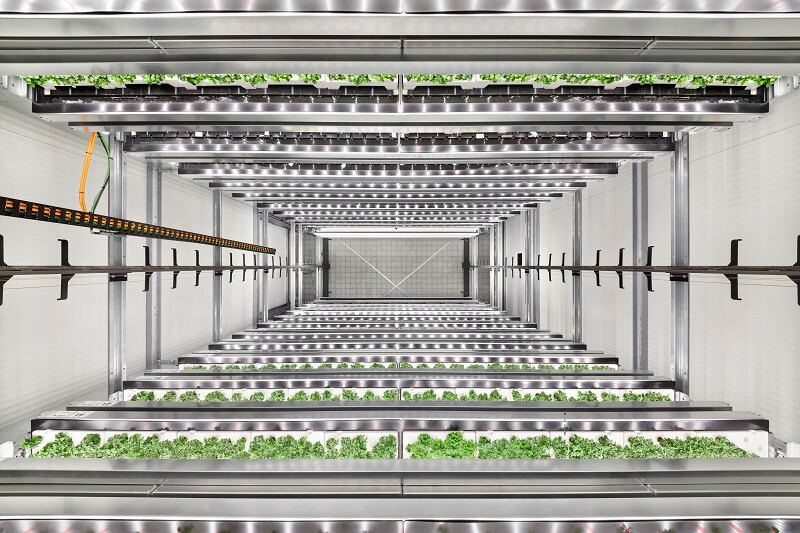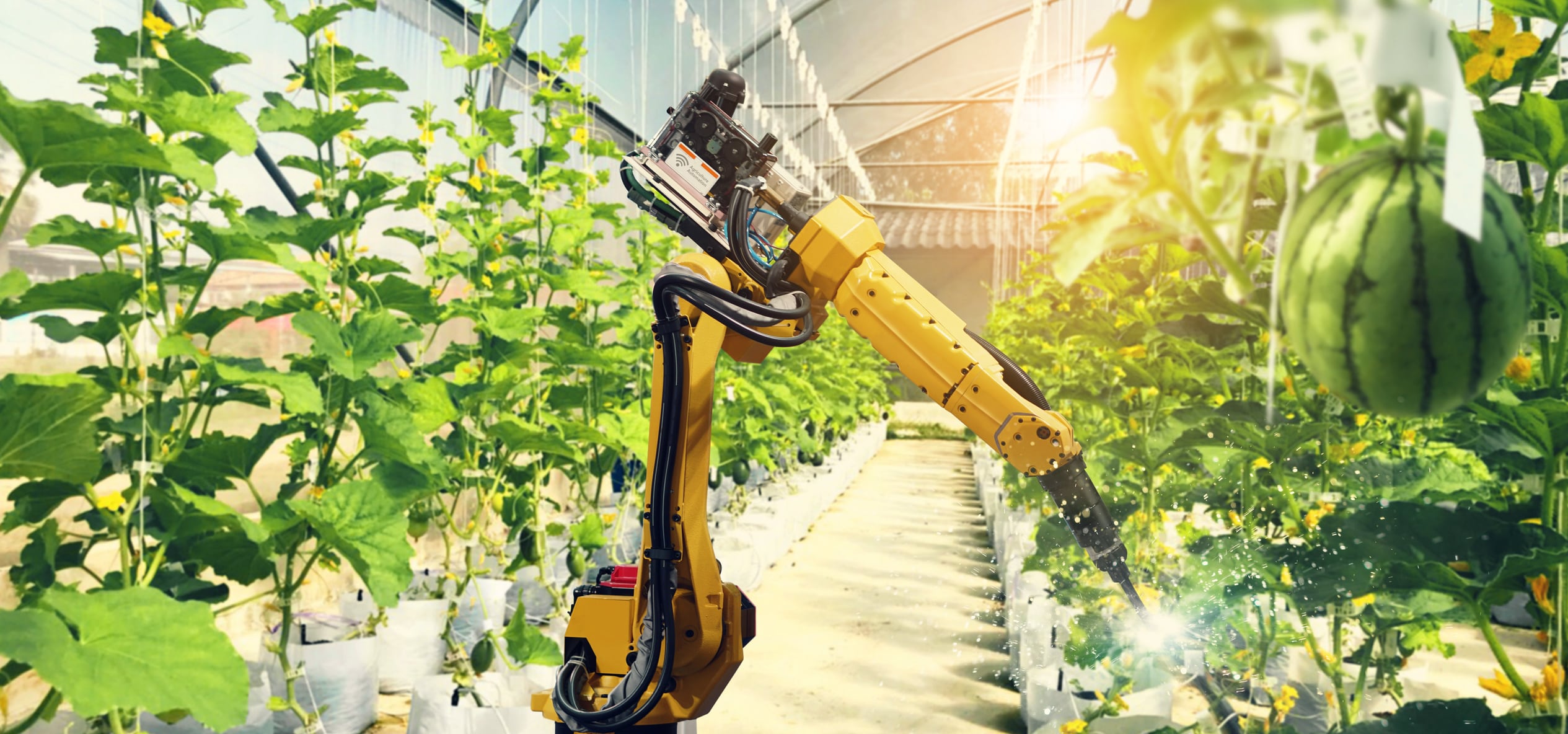German vertical farming company Infarm was founded in Berlin in 2013, starting with in-store ‘cloud-connected smart modular farms’ that were positioned in supermarkets in Berlin like Metro and Edeka. Today, its vision has expanded, giving its ‘urban farming revolution’ a global dimension.
With a presence in ten countries in North America, Asia, and Europe, by the end of 2030 Infarm plans to expand to 20 countries worldwide.
“Infarm is building the fastest growing vertical farm network in the world with a vision to help cities and countries become self-sufficient in their food production,” Co-founder and Chief Executive Erez Galonska said at an event to mark the opening of the company’s first large-scale Growing Centre in the UK.
Describing the UK Growing Centre as Infarm’s ‘largest and most advanced’ facility to date, Galonska revealed the 10,000 square metre site can house around 40 growing units, each standing 10 metres high and capable of producing more than 500,000 plants a year – the equivalent of a football field worth of crops. At full capacity – a target the company hopes to reach by the end of next year – around 20 million plants can be grown annually at the facility, which is located on an industrial estate in Bedford.
Currently in the UK, Infarm supplies Marks and Spencer, Wholefoods, Selfridges, Budgens, Fortnum & Mason, Partridges, Getir and Mum’s as well as various restaurants. At the moment, retailers are their biggest customers but the company, which Galonska told FoodNavigator ‘still considers itself a start-up’, is looking for the ‘right partners and customers’ to extend further in additional channels such as CPG.
Maximum efficiency and resilience
The technology behind the operation has been designed for maximum efficiency. Infarm leverages AI to collect data on ‘every parameter you can imagine’ with sensors monitoring growth 24-7.
Each growing centre in Infarm’s global network of vertical farms is connected to a central ‘farming brain’ that collects ‘billions’ of data points. This is used to optimise particular characteristics in the plants, growing for maximum nutritional density, yield, or flavour, for instance. “We can create an ecosystem that can be tailored towards specific growing recipes… We like to say the more we grow, the better we grow,” Galonska said. “We can personalise, standardise and keep consistency.”
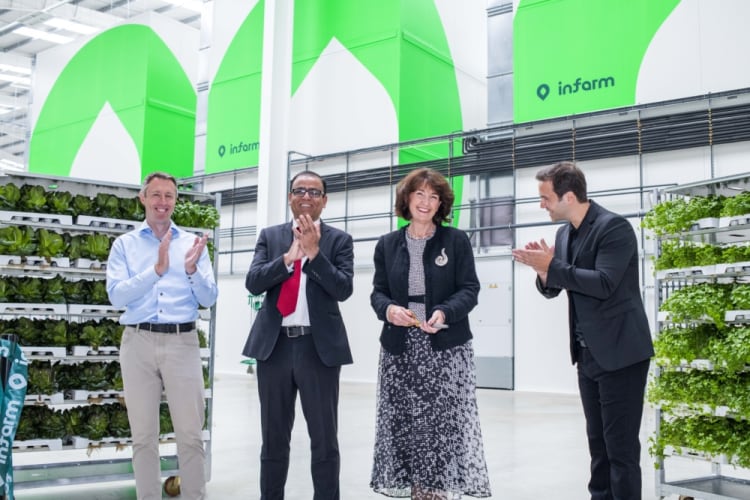
Efficiency is important to Infarm’s business model because the company wants to help address one of the biggest long-term challenges facing the food system: the need to feed close to 10bn people by 2050. “The growth of the global population will lead to more deforestation and soil degradation. We need to find solutions,” Galonska stressed.
According to the food tech innovator, the Infarm system is ‘400 times more efficient than soil-based agriculture’: it uses 95% less land, 95% less water, 75% less fertiliser and zero chemical pesticides. The ‘autonomous farms’ are also less labour intensive and ‘climate resilient’.
Uniquely, the Growing Centre in Bedford will implement rainwater harvesting, the company revealed. The estimated 2.5 million litres of water captured by this technique per year will be used for conditioning the plants.
Local production for a resilient food chain
Infarm’s modular farming model brings fresh produce production with 95% less food miles to cities and countries. The UK facility in Bedford can serve 90% of the country’s population within a four-hour drive.
This means less food waste, Galonska said. “The food industry is looking at 40-50% waste from farm to plate. By setting up our Growing Centres super close to the consumer we minimize waste,” he explained.
At a time of supply chain disruption and an escalating food price crisis, Infarm's approach also means increased resilience.
“Events of recent months have put renewed focus on food security,” noted Jo Churchill, Minister for Agri-Innovation and Climate Adaptation at the Department for Environment, Food and Rural Affairs. “Facilities like this will play a role in the future.”
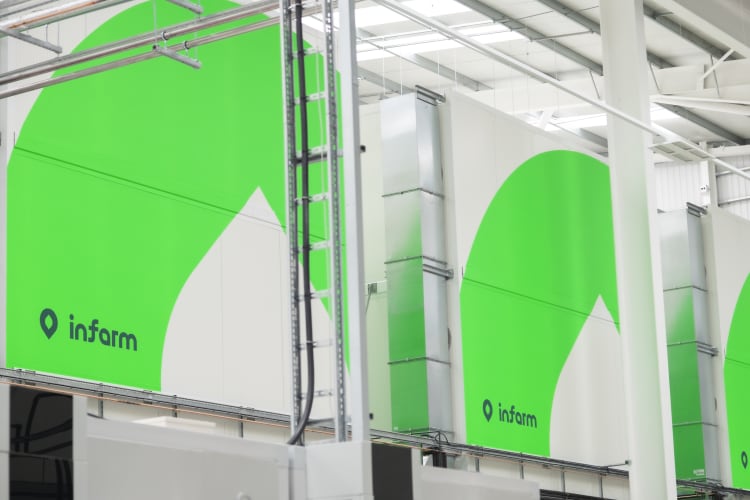
Speaking at inauguration event, Churchill said this kind of private sector investment aligns with the UK Government’s Food Strategy, which aims to ‘develop a food system fit for the future’ by putting ‘security at the heart of government’s strategy’ and ‘transforming food production and supporting innovative businesses like Infarm to develop and grow their businesses’.
Churchill stated that the UK Food Strategy – which has attracted criticism from some quarters for a lack of ambition – aims to ‘secure the UK as a scientific superpower by 2030’. She said efforts include a focus on boosting domestic production to develop a ‘leading-edge’ horticultural strategy with farmers alongside investment in ‘glass houses’ and vertical farms.
She also suggested that – in a departure from the EU’s approach – the UK is likely to soften its regulatory stance regarding technologies like precision breeding that leverage genetic engineering to accelerate plant breeding. “We will support innovation through a new regulatory regime for genetic technology,” the MP said, adding this will deliver benefits including higher yields, lower cost to farmers, more nutritious food and more resilient crops.
“We are only at the beginning. We need to ensure future innovation to deliver our ambutons for food productivity and the environment,” she concluded.
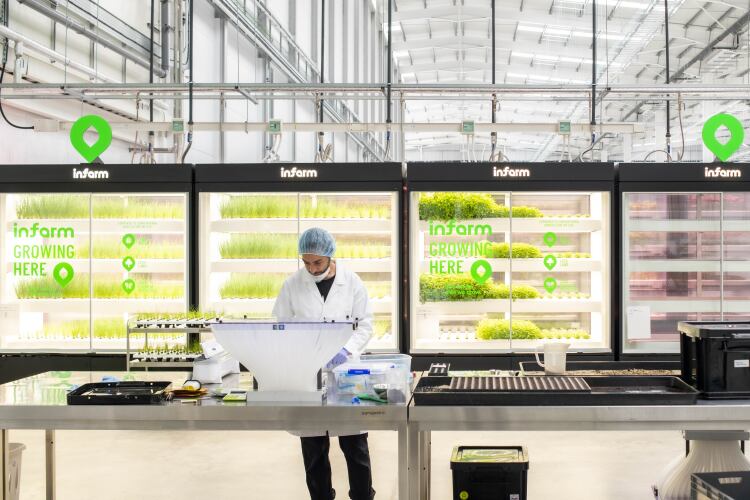
Infarm intends to play a decisive role in the transition towards a more sustainable food system that includes climate-resilient local production. For Galonska the biggest challenges ahead are how to expand the company’s international reach and further scale up production… ‘how to grow fast without diluting the quality of the plants and while protecting the environment’.
“We are building a global infrastructure for the new food system… creating premium, healthier, more nutritionally dense products at affordable prices.”

